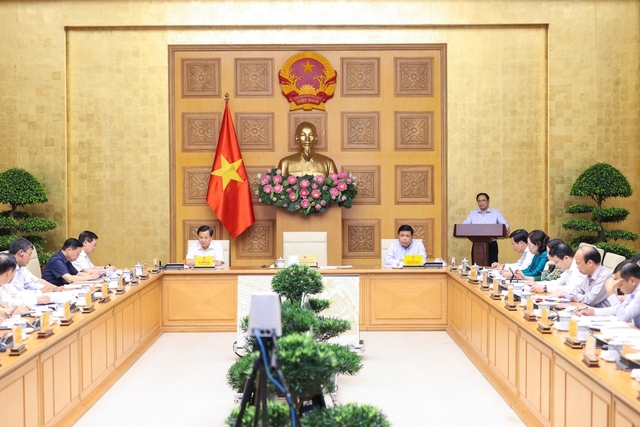Greater efforts needed to stablise macroeconomy, control inflation
It is essential to improve the capacity for analysis and forecasting in a bid to control inflation, ensure macro-economic stabilization and major balances of the economy as a mean of boosting economic recovery and sustainable development.

Prime Minister Pham Minh Chinh made the statement while chairing a July 30 meeting with leaders of ministries, sectors, central agencies, experts, scientists and experts from international organisations in Vietnam a score of measures to maintain macroeconomic stability, and control inflation.
The cabinet leader also emphasized that major focus should be on carrying out monetary policy prudently, flexibly, and effectively in a timely manner in close coordination with fiscal policy and other policies.
Policy tools need to be adjusted appropriately to accelerate socio-economic recovery and development, and contribute to controlling inflation, stabilising the macro-economy, ensuring national financial safety. Key issues in the time to come are accelerating public investment, ensuring social security market and price control, human resources development and strategic infrastructure, Chinh went on to emphasize.
Greater attention should be paid to combating corruption and negative phenomena; and strengthening objective, transparent, honest and timely communication activities regarding the issue.
He asked the Ministry of Planning and Investment to collect comments and finalize relevant reports and documents to submit to the Government and competent agencies.
According to reports released at the meeting, despite facing plenty of difficulties and challenges, Vietnam basically maintained a reasonable economic growth with GDP in the first half of this year being estimated to expand by 6.42% year-on-year, much higher than the expected scenario. The nation’s macroeconomic was stablised, coupled with controlled inflation and major ensured economic balances.
Economists agreed with the Government's view in general and in realizing the economic recovery and development programme in particular, which prioritises using fiscal policy to support monetary policy.
Ha Thi Kim Nga, senior economist at the International Monetary Fund in Vietnam, said Vietnam has done well with inflation control. However, it still needs to stay prudent against inflation risks because of complicated developments in the global market.
Vietnam is implementing a program on socio-economic recovery and development with a scale of VND340,000 billion, about 4% of GDP, focusing on health care, social welfare, business support, and infrastructure development.
The country is also speeding up economic restructuring, innovating growth models, increasing the application of science and technology, promoting digital transformation, developing green economy, circular economy, and energy transformation, making efforts for climate change response, and creating a foundation for sustainable development.

